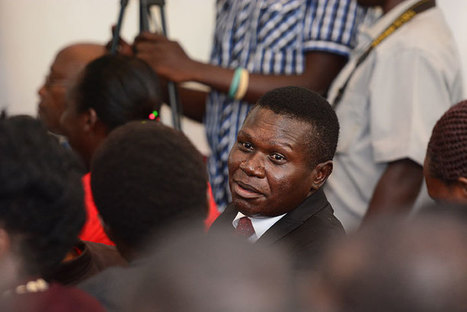The Democratic Party (DP) President, Norbert Mao has noted that talks between President Museveni and four-time Presidential candidate, Dr Kizza Besigye will only benefit the two parties but not the entire country.
Addressing the media on Tuesday at City House, Mao said that in order to resolve the governance issues in the country, all Ugandans and stakeholders should be party to a national dialogue and not just talks between two people.
“There are talks between Museveni and Besigye. We can’t reduce Uganda’s issues to a dialogue between two villages, they can talk but for us we are demanding a national dialogue,” Mao said.
This follows reports in the media that the two strong men in the country are in secret talks discussing the outcomes of the 2016 general elections as well as political transition.
The Daily Monitor recently reported that the two have already agreed and pended signatures on five key issues to inform talks. Top on the agenda is an audit of the 2016 presidential election results.
Mao said that Ugandans should keep demanding for dialogue noting that this is not about cutting deals.
“I don’t want to go for a dialogue that is only benefiting myself. Let’s put pressure on politicians to know that they are representing 40 million Ugandans as they talk about dialogue,” Mao said.
“I call on Ugandans to understand that no meaningful dialogue shall take place unless we put pressure on government,” Mao said.
Mao added that he is in agreement with President Museveni that bodies like Interparty Platform for Dialogue can guide dialogue but it is too small.
“IPOD has only five political parties, we need a broader platform for dialogue, it is good but not enough, necessary but not sufficient,” he said.
Mao’s comments on the dialogue between Museveni and Besigye comes days after the Uganda People’s Congress also downplayed the significance of the dialogue.
Recently, Michael Osinde the UPC Spokesperson said that the talks between two people can not solve Uganda’s political question but will only benefit the two participants.
“The talks between the two could be addressing a different agenda and not to the benefit of all opposition players in the country and that is why we insist on having an inclusive dialogue,” Osinde said.
When two people meet, it doesn’t represent the position of all Ugandan, he added.
Osinde stated that the opposition has never agreed to field one person as their representative in any dialogue.
With such skepticism coming from some of the strongest opposition parties, the dialogue could suffer a major credibility blow.








